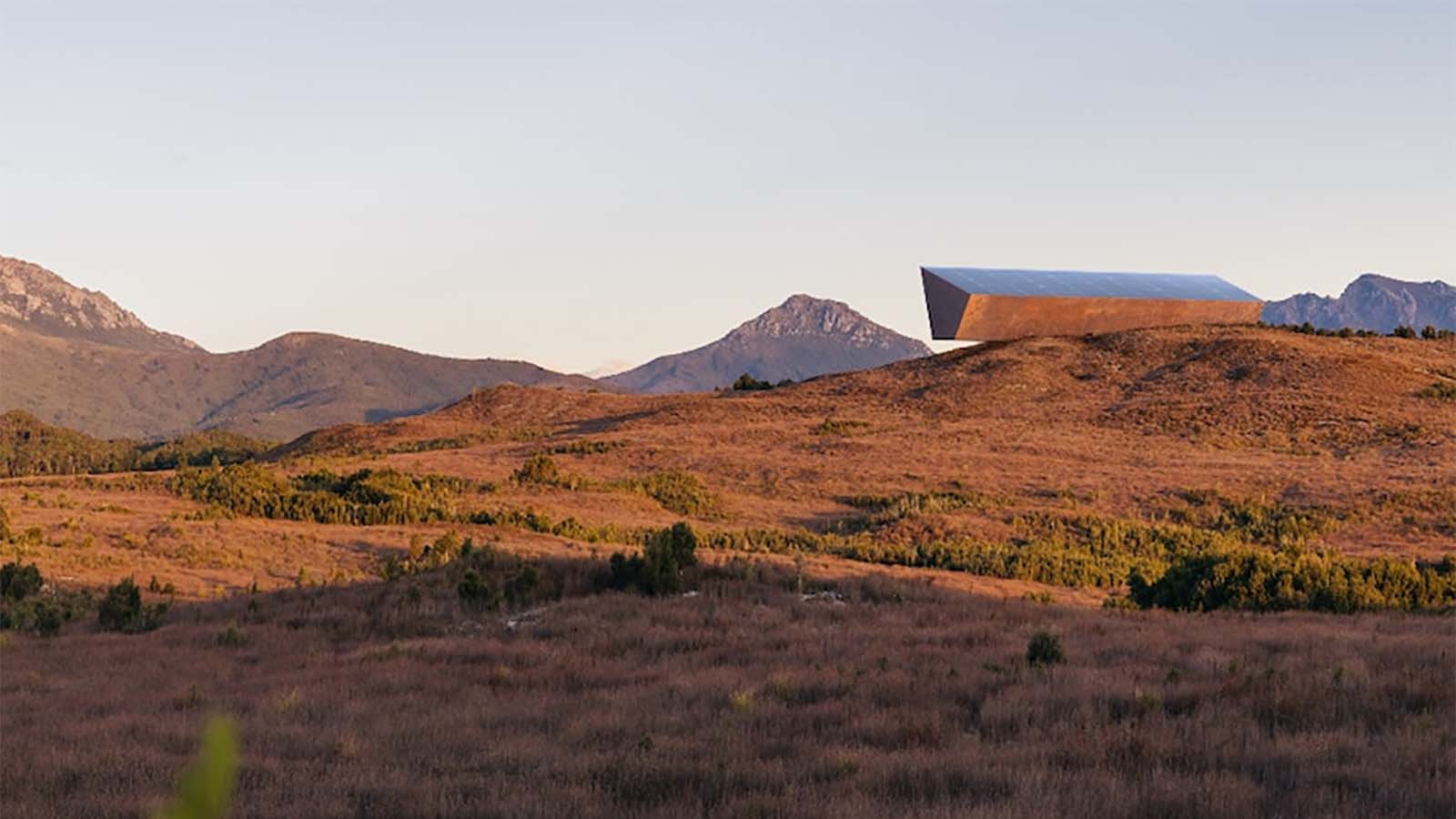A new collaborative project in Tasmania is planning to build a “black box” for the planet, observing and recording data on the worsening climate crisis — as well as our efforts to avert climate change, or our lack thereof.
Called Earth's Black Box, the project is a joint effort between the University of Tasmania; Clemenger BBDO, a communications firm; and Glue Society, an art and directing collective.
The collaboration is preparing to begin construction on the eponymous black box in early 2022, which is designed to “record every step we take towards this catastrophe,” according to the project's website.
“The purpose of the device is to provide an unbiased account of the events that lead to the demise of the planet, hold accountability for future generations, and inspire urgent action.”
The black box itself is a 10 x 4 x 3 meter monolith than looks like it was tipped over onto its side, with one corner jutting out and up, exposing a face of the black box that is covered in solar panels to the sun.
Those solar panels will help power the silent collection of data in the lead up to a global catastrophe.
According to ABC News in Australia, the box will have a 7.5-centimeter-thick steel shell protecting a small warehouse of mass storage drives and communication equipment, as well as some battery backup hardware in the event that solar power isn't available. It will also have internet connectivity so it can carry out its work of archiving the coming end.
Or, hopefully, how we rallied to avert disaster.

In addition to data like land and sea temperatures, ocean acidification, species extinction, and CO2 levels in the atmosphere, it will monitor human population numbers, each nation's reported military expenditures, and other relevant political figures.
The black box will also scrape the web for news and social media posts related to climate change and climate policy. All of which it will save for posterity in the event of a civilizational collapse – a posthumous indictment of sorts.
If that sounds extreme or hyperbolic to you, the black box might be saving that tweet in its mass storage, preserving our lack of understanding of the crisis we faced, as well as the cynical calculations many are making that they will be the ones to ride out the climate crisis because of some measure of privilege they think will offer protection from geological forces powerful enough to move nine trillion gallons of water out of the ocean and into our coastal communities during a single hurricane.
It will record it all, presumably, for whoever comes after the great famines and droughts and mass migrations to learn how humanity could have been so selfish in the face of this crisis.
The plan calls for Earth's black box to be built on a rocky outcrop on the western coast of Tasmania, selected for its political and geological stability.
“How the story ends is completely up to us,” reads a statement on Earth's Black Box's homepage. “Only one thing is certain, your actions, inactions, and interactions are now being recorded.”
TechRadar has reached out to the Earth's Black Box project for details on the storage capacity and expected recording life of the black box, as well as its hopes and expectations of success in inspiring more aggressive climate policy. We'll update this story when we hear back from the project.
Analysis: it's important not to give into climate fatalism
It is easy to despair right now in the face of climate inaction, but that doesn't do much to help anyone. Some measure of climate change is already locked in, but there is still time to avert the worst effects that come with 2.5 degrees or three degrees of warming.
Time is short though, so it's important to not consign humanity to its fate just yet and to continue the work necessary to bring average global temperatures below the two degrees of warming climate scientists say will lead to an endurable disaster, if not a manageable one, but which will leave civilization intact.
Giving up now ensures that the 2.7 degrees of warming or higher that we're on target for will be locked in within a couple of decades. A world with that much warming is simply impossible to comprehend, as humanity has never lived in such a world, though it is likely to be one where Earth's Black Box may stand as the last testament of our failure.
- Well, that was depressing. Cheer yourself up with this fish with a transparent head